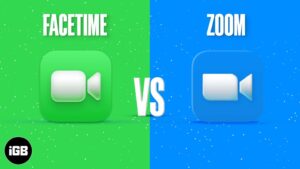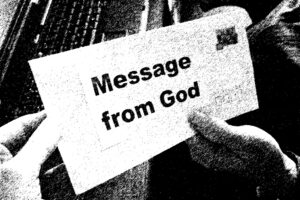Ki Sisa 2024: Face to Face Communications vs. Zoom and Other Video Platforms
by devadmin | February 29, 2024 8:47 pm
Raboyseyee and Ladies,
Face to Face Communications vs Zoom and Other Video Platforms:
Which is better? Shoin, just a few years back when the COVID-19 pandemic caused the world to grind to a halt, when people were working from home, video chat was the life raft that kept our personal and professional connections afloat. The entire civilized world was zooming, face-timing or both. Here we are nearly four years later, and apps like Zoom are still facilitating collaboration between far-flung teammates. And the question is azoy: are face to face encounters more efficient? Or, is Zoom just as good?

Says Jonahtan Levav, the King Philanthropies Professor of Marketing at Stanford Graduate School of Business, that video conferencing is no substitute for face-to-face communication, especially where creativity is concerned. When it comes to the spontaneous and collaborative nature of coming up with new ideas, screens are just too constraining.
Ober how is this introduction at all related to our parsha most well-known for the cheyt ho’eygel (sin of the golden calf), the very sin that keeps on giving -some form of punishment- even thousands of years later? And the answer is azoy: Long before the invention of FaceTime and Zoom as a means of communication, it was the RBSO Himself who decided the matter: face to face conversation was davka His choice of communication specifically when talking to Moishe. Mamish? Let us read the relevant posik from our parsha. Says the heylige Toirah (Shmois 33 :11), azoy:
וְדִבֶּ֨ר יְהוָ֤ה אֶל־מֹשֶׁה֙ פָּנִ֣ים אֶל־פָּנִ֔ים כַּאֲשֶׁ֛ר יְדַבֵּ֥ר אִ֖ישׁ אֶל־רֵעֵ֑הוּ
And the LORD spoke to Moishe face to face, as a man speaks to his friend.
This particular posik can be found just following the many dedicated to the near divorce of the Yiddin from the RBSO when they were caught in an illicit affair shortly after their marriage; the RBSO was not a happy partner in the marriage but alas, decided to forgive them. It’s been rocky for the past three thousand plus years. And so, it has been ever since for the rest of us; most forgive and continue in their own less than stable relationships. Why? Ver veyst? So happens that heylige Gemora -and others- tell us that in every generation since, the RBSO metes out some punishment to the Yiddin because of that incident; the RBSO is seemingly still smarting over this indiscretion. That too is emulated in most marriages; the aggrieved spouse never forgets. Shoin!
On the other hand, this past shabbis, over in Miami Beach, as the heylige Ois was looking ahead for a new topic to over in year fourteen of postings, he came across a shtikel Gemora (Avoido Zoro 4b) which tells us that the RBSO Himself allowed for the eygel incident to occur so that the Yiddin would know and chap what tshuvah (penitence was all about). Why does He still punish us and why were we punished if He allowed it to happen? Ver veyst? One day when you meet Him, you can add this question along with others on your mind. Until then, shut up and relax. More on this topic below. Shoin, since you’re curious about that Gemora, let’s check it out:
וא”ר יהושע בן לוי לא עשו ישראל את העגל אלא ליתן פתחון פה לבעלי תשובה שנאמר (דברים ה, כו) מי יתן והיה לבבם זה להם ליראה אותי כל הימים וגו’
And Rabbi Yehoshua ben Levi says: The Jewish people fashioned the Golden Calf (see Exodus, chapter 32) only to give a claim to penitents, as it is stated after the revelation at Sinai: “Who would give that they had such a heart as this always, to fear Me, and keep all My commandments, that it might be good for them, and with their children forever” (Deuteronomy 5:26). If the nation was truly at such a lofty spiritual state, how could they worship the Golden Calf? Rather, their sin occurred so that it would be made clear that one can repent for any sin, as even a sin as severe as the Golden Calf was forgiven.
Shoin, let’s get back to the topic of face-to-face communications: Over in Sefer Devorim, just when Moishe exited the scene for good (he had just passed away), the heylige Toirah repeats the message:
דברים לד:י וְלֹא קָם נָבִיא עוֹד בְּיִשְׂרָאֵל כְּמֹשֶׁה אֲשֶׁר יְדָעוֹ יְ־הוָה פָּנִים אֶל פָּנִים.
Never again did there arise in Israel a prophet like Moishe—whom the RBSO knew and singled out face to face.

That posik tells us about the closeness; seemingly the RBSO was never again closer to anyone as He was to Moishe. Ober, what’s pshat face to face? Did Moishe mamish see the RBSO’s face when they spoke? Or any other time? How was that possible? Moreover, doesn’t the heylige Toirah dedicate a number of other pisukim- also in our parsha which describe how Moishe asked to see the RBSO’s countenance and the RBSO answered that no man may see “My face and live?” It does just that! Oib azoy, (that being the case), how are we to chap this “face to face” expression which the Toirah mamish repeats twice? Did the RBSO communicate with Moishe fact to face or not?
Nu, as you can only imagine, this question bothered a few who were then forced to dig deeper into the words used by the RBSO Himself to describe His relationship with Moishe. Based on the two pisukim quoted above, it does epes appear -and so the text does specifically state- that He spoke to Moishe face-to face. Ober how is that shayich? Does the RBSO have a face? Not! At least that’s what all the Ois’s yeshiva rebbe’s -and he had many- told him over the years: the RBSO has not a face; no arms, legs and no physical features. And taka, says the Rambam (Hilchos Yesodei Hatorah (1:8,10)), azoy: Behold, it is explicitly stated in the Toirah and [the works of] the prophets that the Holy One, blessed be He, is not [confined to] a body or physical form, as [Deuteronomy 4:39] states: “Because G-d, your Lord, is the Lord in the heavens above and the earth below,” and a body cannot exist in two places [simultaneously]. Also, [Deuteronomy 4:15] states: “For you did not see any image,” and [Isaiah 40:25] states: “To whom can you liken Me, with whom I will be equal.” Were He [confined to] a body, He would resemble other bodies.
 Oib azoy, (and if that’s the case), what’s pshat face to face)? Were they zooming or facetiming? For some further confusion, let’s read the pisukim where Moishe asked to see the RBSO’s countenance (or face?) and was denied. Says the heylige Toirah (Shmois 33:18), azoy:
Oib azoy, (and if that’s the case), what’s pshat face to face)? Were they zooming or facetiming? For some further confusion, let’s read the pisukim where Moishe asked to see the RBSO’s countenance (or face?) and was denied. Says the heylige Toirah (Shmois 33:18), azoy:
שמות לג:יח וַיֹּאמַר הַרְאֵנִי נָא אֶת כְּבֹדֶךָ.
He (Moishe) said, “Oh, let me behold Your kavod!” What’s that? So happens that the literal translation of the word כָּבוֹד (kavod) might mean glory, honor, presence blazing light, etc. Exactly what Moishe meant and asked for, ver veyst? Clearly, Moishe wanted to see more of something.
That being said, the RBSO’s response tells us what Moishe may have been asking for:
שמות לג:כ וַיֹּאמֶר לֹא תוּכַל לִרְאֹת אֶת פָּנָי כִּי לֹא יִרְאַנִי הָאָדָם וָחָי.
[The RBSO] said: “You cannot see My face, for a human being may not see Me and live.” According to one pshat, Moishe wanted to understand the ways of the world. Moishe -as so many others throughout history- wanted to chap the reward and punishment system of this world. Why is it that so many good people suffer while the wicked prosper? Moishe asked to see the face of the RBSO. To see one’s face is to examine every detail of their being. Moishe wanted a clear understanding of what transpires in this world. The RBSO denied his request! Not because He did not wish to grant it, but rather it is simply impossible for a human to understand all the details of the RBSO’s world. Case closed!
Let’s read the last few pisukim of the exchange where again the RBSO tells Moishe that he cannot see His face.
וַיֹּ֣אמֶר יְהֹוָ֔ה הִנֵּ֥ה מָק֖וֹם אִתִּ֑י וְנִצַּבְתָּ֖ עַל־הַצּֽוּר׃
And the RBSO said, “See, there is a place near Me. Station yourself on the rock
וְהָיָה֙ בַּעֲבֹ֣ר כְּבֹדִ֔י וְשַׂמְתִּ֖יךָ בְּנִקְרַ֣ת הַצּ֑וּר וְשַׂכֹּתִ֥י כַפִּ֛י עָלֶ֖יךָ עַד־עׇבְרִֽי׃
and, as My Presence passes by, I will put you in a cleft of the rock and shield you with My hand until I have passed by.
וַהֲסִרֹתִי֙ אֶת־כַּפִּ֔י וְרָאִ֖יתָ אֶת־אֲחֹרָ֑י וּפָנַ֖י לֹ֥א יֵרָאֽוּ׃ {פ}
Then I will take My hand away and you will see My back; but My face must not be seen.”
The bottom line: the pisukim in our parsha (also in Devorim) seem to be in direct conflict with others. Face to face, and you cannot see My Face, seem -at least to the heylige Ois- to be mutually exclusive.
And before we go Veyter, it’s interesting to note how far Moishe’s relationship had progressed since their first chance encounter at the burning bush. Back there (Shmois 3:6) we read this:… וַיַּסְתֵּר מֹשֶׁה פָּנָיו כִּי יָרֵא מֵהַבִּיט אֶל הָאֱלֹהִים.…And Moishe hid his face, for he was afraid to look at G-d.
And the question is azoy: When the heylige Toirah says face, does it mean the face mamish? The bottom line: how did Moishe and the RBSO converse? Ver veyst! Ober, not to worry because says the Rambam so gishmak azoy: it’s not an issue. The idea of face-to-face conversation described, and the entire incident where Moishe was told he cannot see the RBSO’s face, are not in conflict. Case settled. How?
Regarding the posik (33:11) describing the RBSO’s face to face relationship with Moishe, he writes (Moireh Nevochim 2:35) alluding to the idea that Moishe’s “face to face” relationship with the RBSO was an expression of the singular and distinct level of prophecy which Moishe achieved. What that means, ver veyst? Elsewhere, he explains: it’s not that Moishe saw the RBSO’s face; that’s not at all possible as the RBSO has no face. Instead, Moishe was not thrust into a state of physical incapacity when he communicated with the RBSO. As opposed to all other prophets who could not speak to the RBSO while in control of their physical faculties, Moishe was seemingly conscious while talking. Chap all this?

Regarding the posik where the RBSO told Moishe he cannot see His face and live, (posik 20), says the Rambam that Moishe had requested to grasp the RBSO “as He is” – בקש השגת עצמו יתעלה, to which the RBSO responded לא יראני האדם וחי – a man cannot see Me and live, meaning one cannot grasp the RBSO’s essence while he is a being in this world. And for that reason raboyseyee, the Ois tells you over and again that if you have questions of the RBSO, He can always arrange a face to face meeting with you where you might get answers. You will be dead and buried but at least your bones won’t be stirring as a result of being left with open questions. The bottom line: as the Ois reads the Rambam (Maimonides), he asserts that all references in the heylige Toirah to the physicality of the RBSO are but metaphorical.
The bottom lines: The two conflicting pisukim are about two different points. One is a description of Moishe’s clarity of communication with the RBSO, while the other is a statement that even Moishe, being a created being, could not grasp the RBSO’s “essence” and live to talk about it.
And says Rabbaynu Bachya, on the words face to face, azoy: פנים אל פנים, According to the plain meaning of the text we may explain this expression as belonging to what follows, i.e. “as a man speaks to his fellow.” The meaning of the entire line then would be: “and G’d communicated (spoke) with Moishe in a similar fashion to people who speak to each other, i.e. ”face to face.” It means there is no intermediary between the speaker and the one being addressed. The purpose of the posik is to describe the level of Moishe’s prophetic powers; he was the only prophet capable of being addressed by the RBSO in such a fashion. Gishmak!
The final bottom lines: Moishe literally seeing the RBSO’s face when they converse is not the real nor original meaning of the phrase. In a number of months, we will read the famous story of when Miriam and Aharoin become jealous of Moishe and criticized him claiming that he was not special because they have the same relation with the RBSO that Moishe has. Ober the RBSO will rebuke them, and clarify the uniqueness of Moishe, using an expression that parallels “face-to-face” and further clarifies its import:
במדבר יב:ו וַיֹּאמֶר שִׁמְעוּ נָא דְבָרָי אִם יִהְיֶה נְבִיאֲכֶם יְ־הוָה בַּמַּרְאָה אֵלָיו אֶתְוַדָּע בַּחֲלוֹם אֲדַבֶּר בּוֹ. יב:ז לֹא כֵן עַבְדִּי מֹשֶׁה בְּכָל בֵּיתִי נֶאֱמָן הוּא. יב:ח פֶּה אֶל פֶּה אֲדַבֶּר בּוֹ וּמַרְאֶה וְלֹא בְחִידֹת וּתְמֻנַת יְ־הוָה יַבִּיט וּמַדּוּעַ לֹא יְרֵאתֶם לְדַבֵּר בְּעַבְדִּי בְמֹשֶׁה.
And [the RBSO] said, “Hear these My words: When prophets of the RBSO arise among you, I make Myself known to them in a vision, I speak with them in a dream. 12:7 Not so with My servant Moishe; he is trusted throughout My household. 12:8 With him I speak mouth to mouth, plainly and not in riddles, and he beholds the likeness of the RBSO. How then did you not shrink from speaking against My servant Moishe!”

Ober did the RBSO speak mamish mouth to mouth? Does the RBSO have a mouth? Not! Pshat is that speaking mouth to mouth means that the RBSO’s messages to Moishe are clear and straightforward, and that Moishe is not dreaming when he hears these messages but awake and in full possession of his faculties. The final bottom line: it does epes appear that face to face and mouth to mouth are both not to be taken literally. What is and isn’t to be taken literally when we learn the heylige Toirah? Ver veyst!
A gittin Shabbis-
The Heylige Oisvorfer Ruv
Yitz Grossman
Source URL: https://oisvorfer.com/ki-sisa-2024-face-to-face-communications-vs-zoom-and-other-video-platforms/